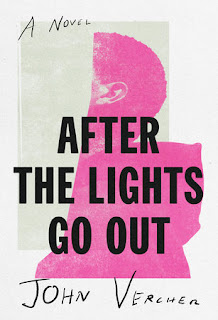Periodically, our department put out a list of Reading Recommendations for those wishing to learn more about diversity, equity, and inclusion. With the aim of expanding on that effort, our DEI committee would like to provide another update on some of the works that we are currently reading or have recently read that touch on issues of diversity, equity, and inclusion.
We're interested in reading books that change, challenge, and expand our thinking on what's happening in our lives and in the world around us. We hope you'll find some exciting or intriguing titles on this list. For those interested in viewing more suggestions, we encourage you to revisit our earlier lists of recommended titles (here and here). You may also want to explore Falvey Library's diversity and inclusion subject guide.
Adrienne Perry: I’ve finished two books in the last week that I’m still thinking about. The first is Interior Chinatown by Charles Yu. The second is After the Lights Go Out by John Vercher. I’d heard of Yu’s book before I picked it up (it won the National Book Award in 2020), but I was eager to see how he used the screenplay format and, more importantly, how he wrote about Asian stereotypes, race, and assimilation. The book is about these topics and a lot more. It’s funny, but also really searing. John Vercher is a Philadelphia-based writer and a mixed-race writer, like me. I was eager to read about Xavier “Scarecrow” Wallace, a thirty-something MMA fighter who is suffering from memory loss brought on by his years of fighting. There’s so much happening in this terrific book, but one of the things I found myself most moved by was Xavier’s relationship with his white father, whose racist attitudes rear their ugly head as he struggles with his own memory loss in the form of dementia. The ending is totally gutting. Highly recommend both!
Mary Mullen: Energized by the Palestine Writes Literature Festival which I attended this September, I’m reading Palestinian literature translated from Arabic. First, Ibtisam Azem’s The Book of Disappearance—a speculative novel that wonders what would happen if one day all the Palestinian people vanished from Israel. This imagined disappearance highlights Palestinian survival despite ongoing colonial violence, on the one hand, and questions the logic of colonialism, on the other. Second, I hope to read Adania Shibli’s Touch and We Are All Equally Far From Love. I read her novel, Minor Detail, a few years ago and it still haunts me and shapes my thinking so I very much look forward to reading her other writing.
Yumi Lee: Ursula K. LeGuin, The Wizard of Earthsea trilogy: a beautifully written, completely engrossing tale that transports you to another world that then refracts back onto our own. The first fantasy series about a boy going to a wizard school; still one of the only fantasy series with a hero who’s not white. Come for the talking dragons, stay for one of the most inspirational stories of personal growth through hardship that you’ll ever read.
Travis Foster: Feeling hopeless as the mass destruction and killing in Gaza grows more tragic by the day, I’ve been reading Palestinian poetry: a literature that stands witness to the miracle of survival against overwhelming odds. I’ve returned several times to Mahmoud Darwish’s “A Soldier Dreams of White Lilies.” Written at the end of a decade during which Darwish had frequently been arrested by Israeli authorities, the poem opts to imagine peace by embracing the humanity of its eponymous IDF soldier, Darwish’s would-be enemy. As the soldier reflects upon a Palestinian peasant he had shot to death, he gradually comes to realize:
I need a kind heart, not a bullet.
I need a bright day, not a mad, fascist moment of triumph.
I need a child to cherish a day of laughter, not a weapon of war.
I came to live for rising suns, not to witness their setting.




.jpg)
